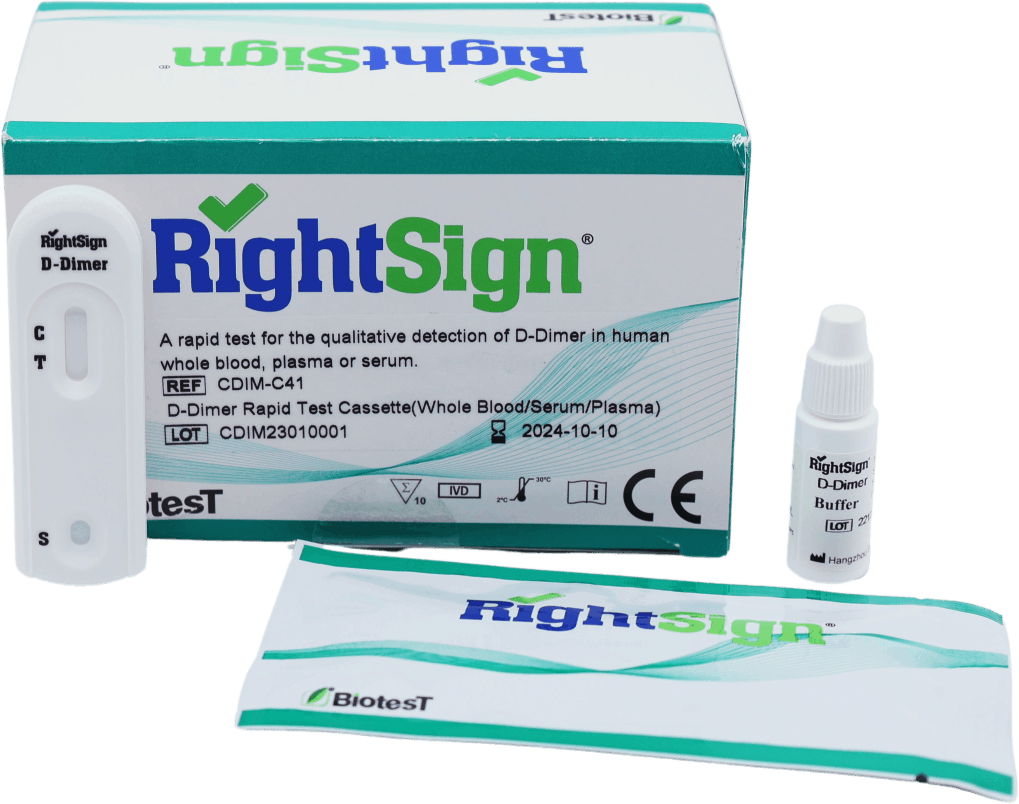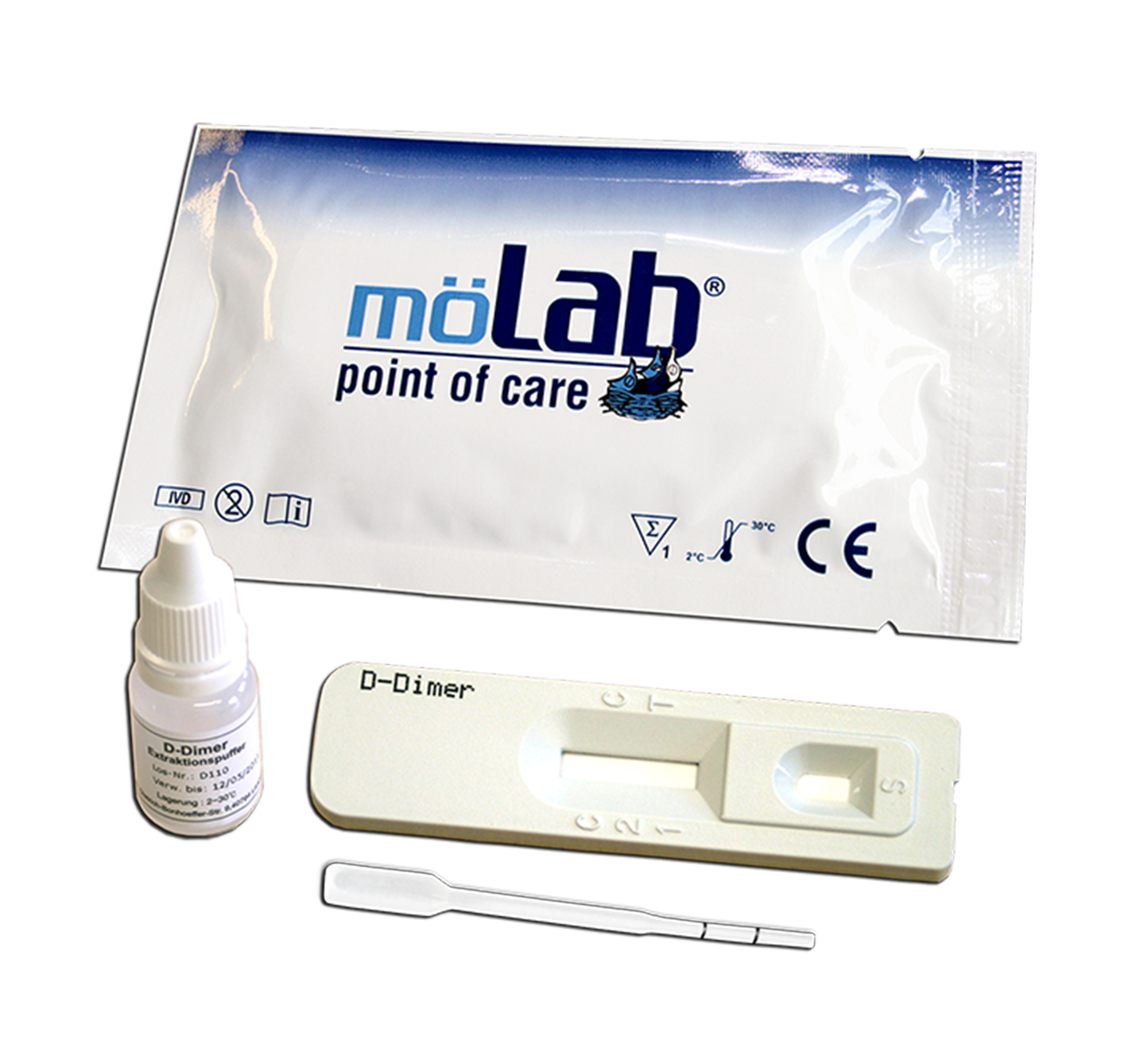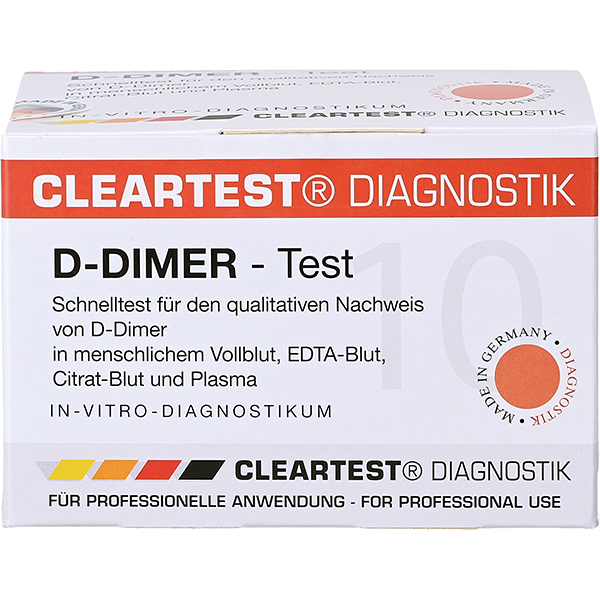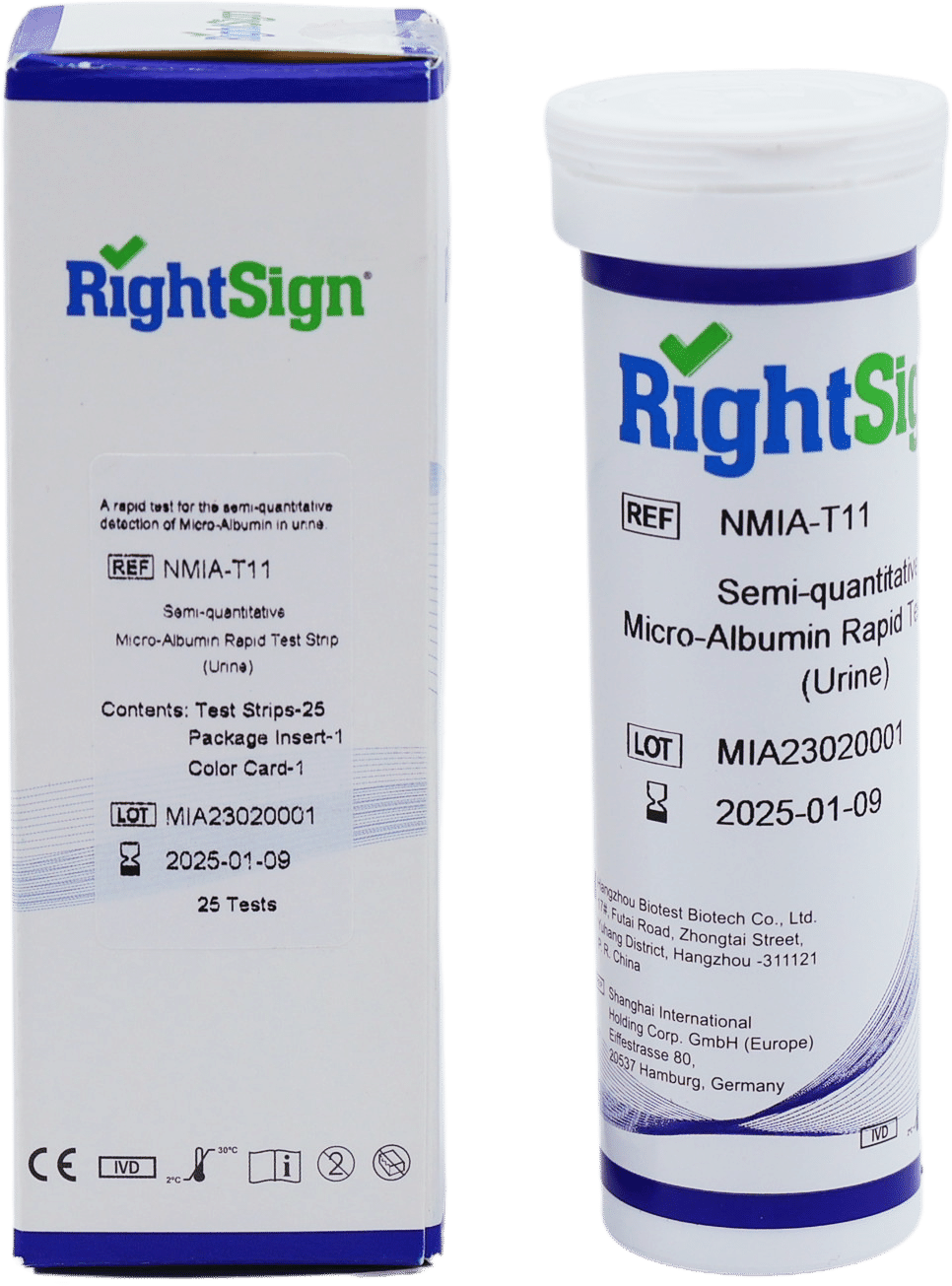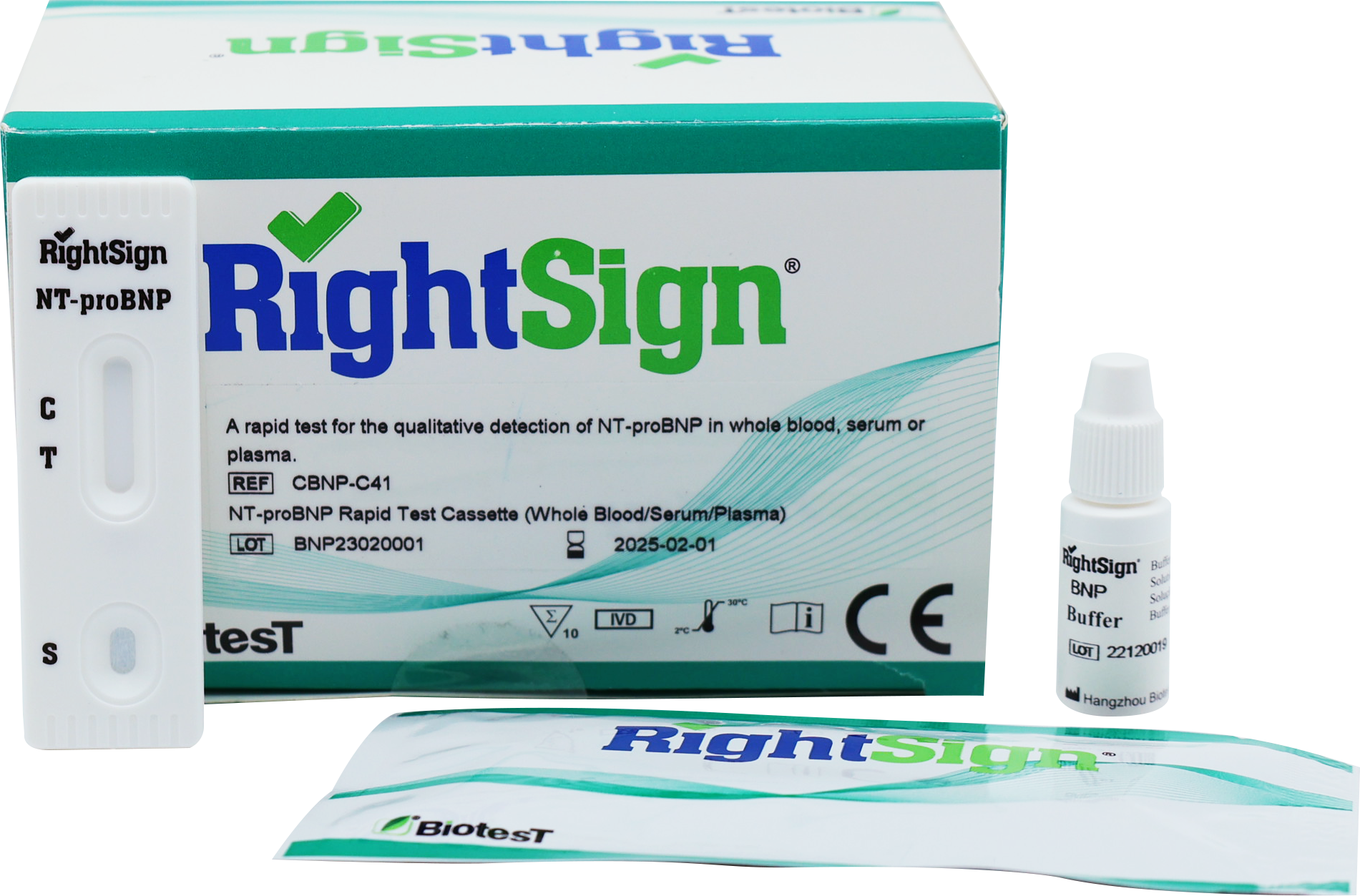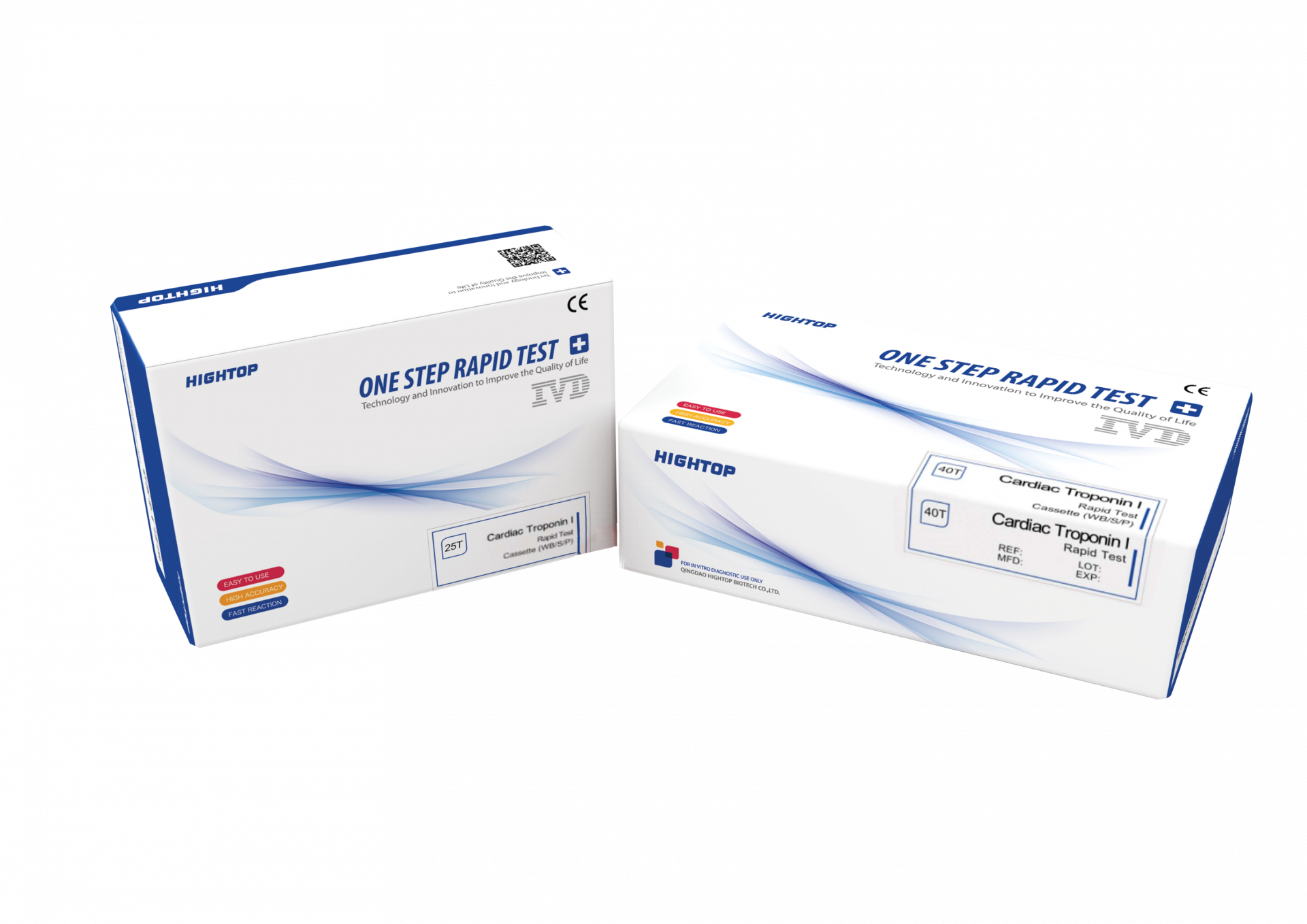D-Dimer Test
D-Dimer Tests are a crucial tool for detecting thrombosis and embolism. Our commitment is to deliver doctors, healthcare providers, clinics, and hospitals the best-of-class D-Dimer Test. These tests provide accurate, qualitative data about blood clotting, allowing for confident and secure diagnoses. These tests offer an effective way to proactively monitor health and ensure peace of mind.
Recommended Solutions for Accurate D-Dimer Blood Test
We are pleased to continue providing you with Troponin, NT-proBNP, and Micro Albumin Rapid Tests so you can maintain a comprehensive approach to the early detection and management of cardiovascular diseases.
FAQ for D-Dimer Test - D-Dimer Laboratory Test
The available D-Dimer Test helps in detecting conditions such as thrombosis and embolism. Typically, samples are taken using whole blood, serum, or plasma. The leading methods are laboratory-based analysis or point-of-care testing. Find more details here on the test's sensitivity and specificity, how to interpret results, and reasons to read the FAQs for understanding the test process and what results mean.

- What varieties of D-Dimer tests are available, and how do they differ?
- How can I evaluate the reliability of the D-Dimer blood test?
- How do D-Dimer Rapid Tests detect blood clotting disorders?
- Who should consider using the D-dimer lab test?
- What is the accuracy of D-dimer tests?
- What does a D-dimer-positive test result mean?
- Why are D-dimer diagnostic tests essential for public health?
- Do you offer other cardiovascular rapid tests and a ranking of the best available options?
- Where can I find a comprehensive comparison of the D-Dimer blood test?
What varieties of D-Dimer tests are available, and how do they differ?
D-Dimer tests primarily include the latex agglutination D-dimer test, the enzyme-linked immunosorbent assay (ELISA), and whole-blood agglutination assays. These tests measure the concentration of D-dimer, a protein fragment produced during blood clotting, in the blood. The ELISA method is more sensitive and specific, making it better for detecting smaller clots and disseminated intravascular coagulation (DIC).
- Latex Agglutination D-dimer test
- Enzyme-Linked Immunosorbent Assay (ELISA)
- Whole-Blood Agglutination Assays
Latex Agglutination D-Dimer Test
This is a rapid test that uses latex particles coated with anti-D-dimer antibodies. If D-dimer is present in the blood sample, it will bind with these particles, causing visible clumping or agglutination.
Enzyme-Linked Immunosorbent Assay (ELISA) D-Dimer Test
This is a more sensitive and specific test that uses enzyme reactions to detect the presence of D-dimer in a blood sample. The ELISA D-dimer test is often used in hospital settings for a more accurate detection of clotting disorders.
Whole-Blood Agglutination Assays
These point-of-care tests allow testing using whole blood without requiring plasma separation. They are quick and suitable for emergency settings but are generally less sensitive and specific than ELISA tests.
How can I evaluate the reliability of the D-Dimer blood test?
The reliability of the D-Dimer blood test can be assessed by examining its sensitivity, specificity, and referencing independent expert studies. A trustworthy test should exhibit high sensitivity (correctly identifying those with the condition) and high specificity (correctly identifying those without the condition). It's also important to consider the test's rate of false positives.
How do D-Dimer Rapid Tests detect blood clotting disorders?
D-Dimer Rapid Tests detect blood clotting disorders by measuring the level of D-dimer in the blood. An elevated D-dimer level may indicate a blood clotting condition, such as deep vein thrombosis (DVT) or pulmonary embolism (PE).
Who should consider using the D-dimer lab test?
Individuals with symptoms of a blood clotting disorder, such as deep vein thrombosis (DVT) or pulmonary embolism (PE), or those being monitored for disseminated intravascular coagulation (DIC) should consider a D-dimer lab test.
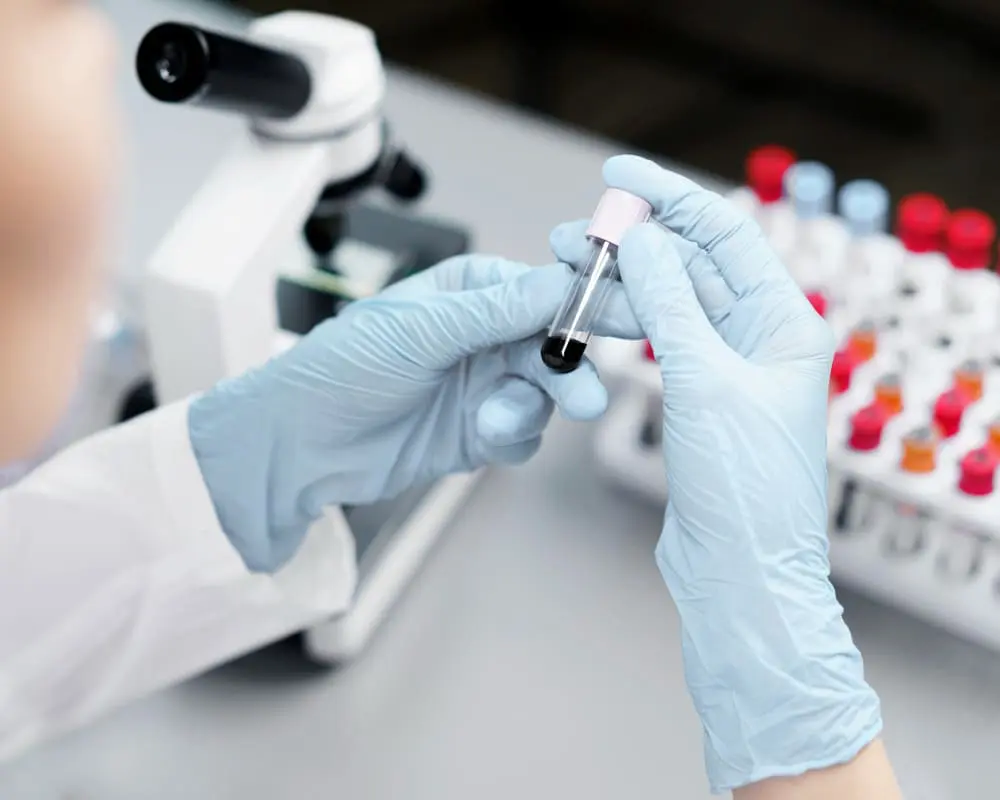
What is the accuracy of D-dimer tests?
The accuracy of D-dimer tests varies. While they are highly sensitive and can effectively identify most cases of DVT and PE, they have a lower specificity, meaning there's a risk of false positives.
What does a D-dimer-positive test result mean?
A positive D-dimer test result indicates an elevated level of D-dimer in the blood, which can suggest the presence of a blood clotting condition. However, it's not specific to any particular condition, so further imaging tests may be needed.
Why are D-dimer diagnostic tests essential for public health?
D-dimer diagnostic tests are vital for public health as they enable early detection of serious conditions like deep vein thrombosis and pulmonary embolism, potentially preventing complications and fatal outcomes. They also guide treatment strategies for conditions like disseminated intravascular coagulation.
Do you offer other cardiovascular rapid tests or a ranking of the best?
Yes, we do offer more rapid cardiovascular tests:
NT-proBNP
Best Product: RightSign NT-proBNP Rapid Test
Cassette
Source: Best NT-proBNP Tests
Troponin Test
Best Product: Hightop Cardiac Troponin I
Rapid Test Cassette
Source: Best Troponin Tests
Micro Albumin Rapid Tests
Best Product: RightSign Semiquantitative Microalbumin Rapid Test Strip
Source: Best MicroAlbumin Tests
Where can I find a comprehensive Comparison of D-Dimer blood test?
You can access a comprehensive comparison of D-dimer tests here. This resource offers in-depth information to guide you in selecting the most appropriate test for your specific requirements.

